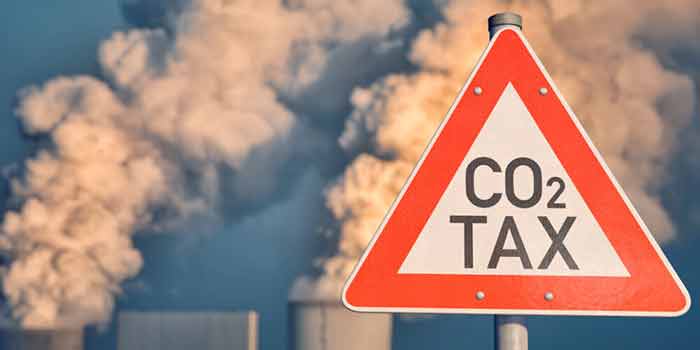
“Without quick action to curb CO2 emissions, global warming is likely to increase by 4 degrees Centigrade (7.2 degrees Fahrenheit) above today’s normal during the 21st century and that is dangerously close to the temperature of 6 degrees Centigrade above normal that initiated the Permian-Triassic extinction event 252 million years ago when 96%* of all marine species and 70% of all terrestrial vertebrates were wiped out. *(current estimate 81%)”
2012 World Bank report
XXXXXX
How can our 21st century world society of seven plus billion people mechanistically orchestrate a turnover from fossil fuels to renewable energy? How much time do we have? How much fossil fuel energy will be needed for the conversion? Will that amount of fossil fuel energy requirement in itself put us over the CO2/CH4 feedback loop edge? Will industries such as air, automobiles, trucking, ocean shipping and metals now so reliant on fossil fuels be able to make the transition; and if so, what can be the alternative they employ? How will highly carbon consumptive basic industries such as concrete and steel make the transition? How will the citizens country by country, region by region, respond to such a state of economic disruption and reorganization?
These are questions that are not being broadly discussed in economic academia nor in the business community nor in government. They should be. The future of our species is at stake.
There is a way that a relatively non-violent transition can take place. It will, however, require strong leadership throughout the world at the multinational level. Fortunately we have seen some positive signs. The COP meetings have been a starter. The have showed a unity of common purpose among many world leaders. (excluding the U.S.) But they have also showed a reluctance to make firm binding commitments.
The situation is calling for far greater resolve. Heads of State must come together under the articles of a newly formed multinational body with powers beyond those of the United Nations and other such multinational organizations. Within the next 36 months such an organization must economically orchestrate an increase in the cost of carbon world-wide; from carbon’s first moment of entry into the system through to its becoming a part of derivative goods and services.
This would be a market based approach. National and international markets would serve as disciplinarian. They would force alternative forms of energy to be brought into the system up and down the production/consumption line. This would be achieved by pricing in gradual increases in the price of carbon beginning at its source. Increasing carbon cost at its source would force higher prices to be passed through to the final price of all derivative goods and services. Non-carbon derivative forms of energy would then be given the incentive to become increasingly competitive. They eventually would replace carbon. Some end products that are solely reliant on the burning of large amounts of carbon would be eliminated from the system by way of price appreciation.
There are far reaching social implications. Present consumers of carbon energy dependent goods and services will have to switch over to non carbon goods and services. Carbon producers will be forced out of the market. Carbon-reliant socio/economic activities too will be forced out of the market. Price will force change.
This approach is congruent within the currently established framework of existing capital market systems both within nations and internationally.
But first a word on the profession of economics: A move in the direction outlined here cannot occur without the voices of the prominent economists of our age. They can make the difference. Their profession is in control of economic thought. They can bring the public to an awareness of the seriousness of the problem and its solution by way of pricing in negative external costs. The time has come for them to recognize this and to speak up.
Now to the details:
For producers of oil, gas and coal a national tax (Negative Externality Tax – let’s call it NET) will be levied at the point of extraction. That national tax will be increased year by year over a fifteen year period. It will therefore become integral to the pricing of all domestic goods and services in the country and the export pricing of those goods and services.
The tax rate established in each compliant country will serve to bring domestic and/or international price up to an internationally agreed carbon equivalent figure. That figure would be increased year by year based on an internationally agreed world-wide 15 year carbon reduction formula. Here is an example for diesel: The NET would bring the cost up to say $70 per barrel domestically and internationally immediately and then over 15 years to say $ 200/300 per barrel or whatever price brings global carbon emissions down to an ecologically acceptable level.
In the case above revenue from the domestic tax will first be the difference between the internal production cost and $70, then year by year the increasing formulaic amount. That revenue will be retained by the producing nation where it can be used for needed internal investment and social adjustments arising from higher prices for carbon consumptive consumer and industrial products. It can also be used to encourage non carbon activities and to develop non carbon sources of energy.
For those countries that refuse to comply, each and every export to a compliant will be evaluated by the compliant as to its non internally taxed NET content. Such imports will be import duty taxed – let’s call it IDT. Such IDT funds will be turned over to the World Body as described below.
Countries that import from non-compliant countries and refuse to comply with this repricing formula and then re-export to compliant countries will also have their exports to compliant countries taxed based on missing NET content.
Can this be accomplished? Some of the finest mathematical minds on our planet now spend their time devising algorithms for computerized trading of securities in order to exploit the weaknesses of other algorithms. The time has come for the economics profession to give these minds a new challenge, one that will benefit human civilization – and save it from the possibility of extinction.
Import duty revenues (let’s call them IDR’s) collected by compliant countries from non-compliant country imports can be turned over to a body such as the World Bank to be used to assist compliant nations with their difficulty in making necessary economic/social adjustments. These adjustments will fall into two categories; one the decline nationally in fossil fuel export revenues and the other the national destruction and dislocation being caused by ongoing climatic events.
Immediate examples of potential beneficiaries in the second category are a number of Island nations in the Pacific already being inundated by rising waters and Arctic settlements being affected by global warming. Most will be without internal resources to resettle population. Many other nations with low land areas being inundated by rising oceans will also need this kind of assistance.
Populations in many areas of the planet will be severely affected as fossil fuels are eliminated. Russia, Australia and the Middle Eastern countries are examples. Many Middle Eastern countries are almost totally reliant on oil revenues to pay for food imports. Such revenues will decline to the point where they will be insufficient for feeding the population. This also will have an impact on Middle Eastern oil and gas non-producers and minimal producers, those countries that have relied on grants from their wealthy neighbor producers. Egypt, reliant on neighbor contributions for food imports is a prime example. The future for Egypt will look bleak. Although extrapolating from present trends to make predictions is always problematic, current projections are a population there that will have increased from 90 million to 138 million by 2050. The Nigerian situation is even more bleak. Its petroleum industry is the largest in Africa. Its population of 186 million is expected to grow to 390 million by 2050.
Time will be needed to allow many of these countries to restructure and rebalance their economies – as well as population levels. Others in need of assistance will be countries like India with pockets of poverty and minimal originating carbon revenue. Countries such as these will need massive injections of capital in order to restructure their industries and feed their populations. As a general rule, all nations that are unable to fund societal adjustments will need assistance.
The pricing/costing methodology here outlined will allow the world within the critical 10/15 year period to turn to carbon free sources of energy. Nation states at all levels of technological development will be given time to adjust. As they do, high carbon input products and services will leave the market and be replaced by products with low or no carbon energy input. Societally, this will force nations at all ends of the planet to adopt a different social political economic energy structural logic from that which exists today.
It must be understood: This is just the first step toward human planetary resource control – and human survival. Pricing in of other negative externalities harmful to humanity and all other life on the planet can come next.
The time has come for all industrialized nations to acknowledge that the carbon problem is planetary and it can only be solved multi-nationally.
The future of human civilization hangs in the balance.
XXXXX
David Anderson brings together a wide range of interests in his writings, namely; theology, history, evolutionary anthropology, philosophy, geopolitics, and economics. He has written four books. The fourth is about a necessary geo political, social, religious, economic paradigm shift for human survival. Go to: http://inquiryabraham.com/new-book.html
SIGN UP FOR COUNTERCURRENTS DAILY NEWS LETTER










































